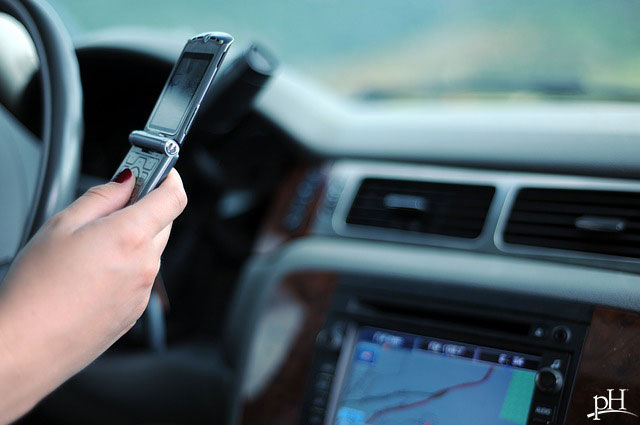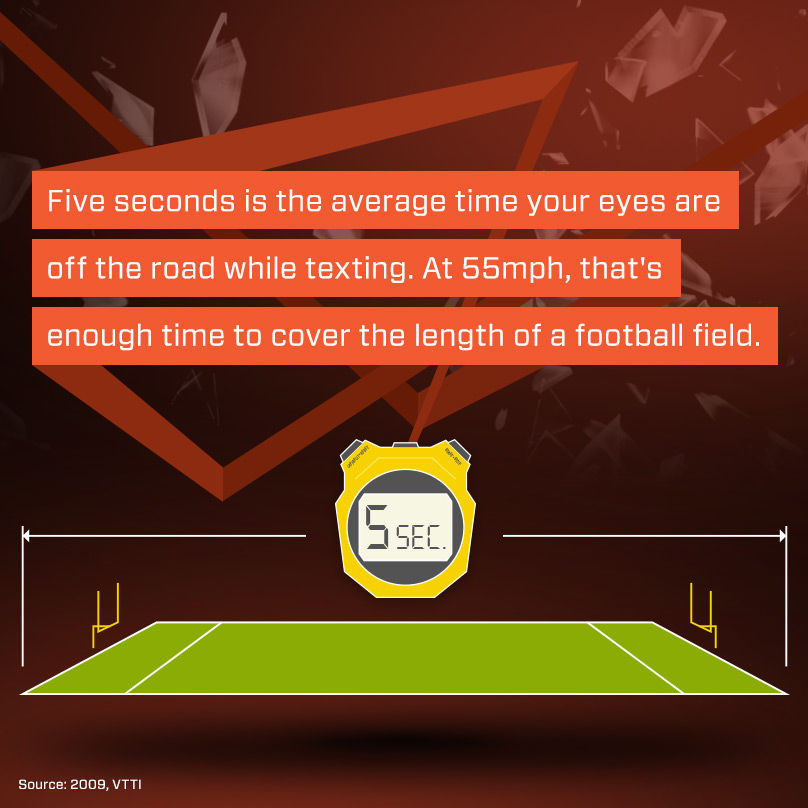Los Angeles drivers and drivers nationwide still can’t resist texting and driving
9 years ago | Family Health
By pH health care professionals
It seems like everywhere you look, drivers on the road are saying the “red-light prayer” -- heads bowed, looking down at their laps, with a blue glow coming up to their face. Despite 46 states banning texting while driving (in laws that also typically ban reading/sending email, using phone apps or other internet activity), and 14 states banning the use of handheld cell phones for any activity behind the wheel, including talking, it seems the problem is only getting worse.
To give you an idea, in California, the number of people found guilty of texting behind the wheel jumped from under 3,000 in 2009 to 31,000 in 2015, the Associated Press reports. And all this distracted driving is putting lives at risk. We know you get bored sitting in traffic, but how about listening to your favorite podcast, or a cueing up a killer playlist?
Nearly 3,500 people were killed in crashes involving distracted drivers in the mainland U.S. and Puerto Rico in 2015 (300 more than the year before), the National Highway Traffic Safety Administration estimates. In 2014, 18 percent of injury crashes, and 16 percent of police-reported car crashes, involved distracted driving, the NHTSA reports.
However, experts warn that cell phone-related crashes are significantly underreported, the AP reports. Police have to rely on the drivers’ testimonials, and who wants to admit they were texting just before the crash?
It’s an issue that is difficult to track, but also difficult to enforce. It can be difficult to prove a driver is texting in states that allow drivers to talk on their handheld cell phones. And the laws vary by state. In Florida, for example, texting is considered a “secondary offense,” the AP reports. Therefore, a police officer can’t stop a texting driver unless the officer spots another violation, like speeding.
But officers across the country are finding creative ways to enforce the law, with some riding high in tractor-trailers in order to have a clear vantage point to spot texting drivers. Others are taking to bicycles, which allow officers to easily approach the driver’s window with a ticket. Some are even trying disguises that allow them to spot texting drivers and radio ahead to a patrol car, the AP reports.
In New York, some lawmakers are proposing officers use a Textalyzer device when investigating a car crash. The device would check the driver’s phone for activity prior to the crash. Time will tell whether and how much technology will play a part in stopping distracted drivers.
But even when texting and driving is caught, the fines are quite varied from state to state, ranging from as little as $20 up to the heftier $500 ticket. So for some drivers, it’s no more cumbersome than a parking ticket.
While drivers know it’s dangerous, the AP reports, they still do it anyway. In a society where we are constantly connected to our devices, perhaps the impulse to check after hearing that “ding” is just too alluring. Perhaps it’s become such a habit that it’s almost as reflexive as scratching an itch.

However, the Center for Health Communication at Harvard University (responsible for the 1980s campaign for “designated drivers”) aims to change the public’s perception of distracted driving with a new major media campaign, the AP reports. The campaign will warn drivers not to use their phones, and will also promote defensive driving (watching out for distracted drivers). The goal: to “get the attention of people by not talking to them as the villain, but rather as the other guy.”
Other campaigns from both government and private organizations are rallying around the cause by encouraging drivers to take a pledge against distracted driving (like the ones here and here) and by creating and sharing compelling videos.
Be proactive
Be proactive about texting and driving on the 405 freeway and anywhere else by keeping your cell phone out of reach or turned off while driving. There are also apps that can help you stay focused by blocking texting while driving. If you want to join the cause and spread the word, share this article and other compelling information with friends and family on social media.
Enjoy Your Healthy Life!
The pH professional health care team includes recognized experts from a variety of health care and related disciplines, including physicians, health care attorneys, nutritionists, nurses and certified fitness instructors. To learn more about the pH Health Care Team, click here.







